In Part 1, we explored the ever-expanding definition of the global commons and the claim made by stakeholder capitalists that they should be the trustees of both the global commons and society. We are now going to look at how systems have been established to enable those stakeholders to seize the commons and to control society.
We should be mindful of what “global commons” means in the eyes of the Global Public-Private Partnership (GPPP) capitalists. For them, it indicates possession of everything: every resource on the planet, all land, all water, the air we breathe, the natural world in its entirety, and all humanity.
Principles of the Global Commons
The notion of the global commons sprang from an amalgam of two principles in international law: The Tragedy of the Commons (ToC) and the Common Heritage of Mankind (CHM).
In his 1968 paper on the ToC, American ecologist and eugenicist Garrett Hardin, building upon the earlier work of 19th–century British economist William Forster Lloyd, outlined the population and resource problems on this planet and predicted that “a finite world can support only a finite population; therefore, population growth must eventually equal zero.”
While this principle may ultimately become true if a whole raft of assumptions are accepted, the point at which zero population growth becomes necessary is unknown. The evidence suggests we are nowhere near that limit. Other eugenicists, too, have claimed in the past—and continue to claim—that Earth faces the threat of overpopulation. There is, however, no scientific justification for their view.
Hardin theorised that when a resource, such as land, is shared in common, people acting in rational self-interest will tend to increase their use of that resource because the cost is spread among all. He called this type of thinking a tragedy because, he maintained, if all act accordingly, the resource would dwindle to nothing and everyone suffer as a result.
Hardin insisted that this tragedy could not be averted. Therefore, since human beings were, in his eyes, incapable of grasping the bigger picture, the only solutions were “managed” access to resources and “population control.”
While Hardin’s elitist ToC concept suggested regulated, enclosed (that is, private) access to common resources, the common heritage of mankind (CHM) principle rejected the idea of enclosure, or privatisation. CHM instead advocated that a special group should be created, by international treaty, to be “trustees” of the global commons. Seen as more progressive than ToC, CHM was nonetheless no less elitist that Hardin’s concept.
The philosophy of CHM emerged on the global political stage in the 1950s. But it was a 1967 speech by the Maltese ambassador to the United Nations, Arvid Pardo, that established CHM as a principle of global governance. This eventually led to the 1982 United Nations Convention on the Law of the Sea (LOSC).
Citing the CHM, the UN declared in Article 137(2) of the LOSC:
“All rights in the resources of the Area are vested in mankind as a whole, on whose behalf the Authority shall act.”
That “Area,” in this case, was Earth’s oceans, including everything in and beneath them. The “Authority” was defined, in Section 4, as the International Seabed Authority (ISA). But Article 137(2) of the LOSC is self-contradictory. I shall explain.
The legal definition of “vested” implies that the whole of humanity, without exception, has an absolute right to access the global commons. In this instance, those commons were the oceans. While the legal definition speaks of ownership, “vested” seems to guarantee that no one can lay an individual claim to ownership of the oceans or their resources—that access is instead equally shared by all.
Supposedly, this alleged right can never be “defeated by a condition precedent.” Yet this same right is repudiated entirely by these words: “on whose behalf the Authority shall act. . .”
Who among the billions of Earth’s inhabitants gave the ISA its alleged authority? When were we, the public, asked if we wanted to cede our collective responsibility for the oceans to the ISA?
Answer: We weren’t. On the contrary, this authority was seized by UN diktat and nothing more. It is now the ISA that, by a condition precedent, can control, limit and license our access to the oceans.
This is the essential deception at the heart of GPPP’s global commons paradigm. The GPPP stakeholders hide their theft of the commons. They hypocritically call for stewardship of the resources to be vested in all humanity while simultaneously seizing the entirety of those resources for themselves.
Seizing The Global Commons: The Oceans
When interpreted by international law, the CHM appears to place the private ownership of the global commons—the practice suggested by the ToC—beyond the reach of governments and their stakeholder partners. After all, these entities should have no more right to these riches than anyone else. Indeed, legal challenge to any claim should be a relatively straightforward process for any concerned individual or group minded to make one.
Yet a successful legal challenge is not even a remote possibility at this point. That is because international law, as it pertains to the global commons, is a meaningless jumble of inconsistencies and contradictions that ultimately amounts to “might is right.” Anyone mounting a challenge to a GPPP claimed right to posses the commons would need to retain a legal team capable of defeating the UN’s lawyers and find a judiciary willing to find in their favour.
The law is ostensibly designed to leave us imagining that we have protected rights and responsibilities towards these shared resources. In point of fact, if subjected to any reasonable scrutiny, the legal notion of the global commons looks more like a diversion to facilitate a robbery.
If we look at the International Seabed Authority’s record of stakeholder engagement, we quickly find its Strategic Plan for 2019–2020. The plan succinctly outlines how the scam operates:
“In an ever-changing world, and in its role as custodian of the common heritage of mankind, ISA faces many challenges[. . . .] The United Nations has adopted a new development agenda, entitled ‘Transforming our world: the 2030 Agenda for Sustainable Development.’ [. . .] Of most relevance to ISA is SDG 14 — Conserve and sustainably use the oceans, seas and marine resources.”
In other words, the shared resource—global commons—of Earth’s oceans is no longer freely accessible to humanity as a whole. Rather, the ISA determines who gets access to oceanic resources based upon Sustainable Development Goals (SDGs). Effectively, the ISA has turned access to the global commons into a new market.
The two most vital questions we must ask are: How are these allocation decisions made? And by whom? The answers reveal who controls these new highly regulated markets. According to the ISA, the controllers are:
“States parties, sponsoring States, flag States, coastal States, State enterprises, private investors, other users of the marine environment and interested global and regional intergovernmental organizations. All have a role in the development, implementation and enforcement of rules and standards for activities in the Area.”
In addition, the ISA declares that it will:
“Strengthen cooperation and coordination with other relevant international organizations and stakeholders in order to [. . .] effectively safeguard the legitimate interests of members of ISA and contractors[. . . .] The rules, regulations and procedures governing mineral exploitation [. . .] are underpinned by sound commercial principles in order to promote investment[, . . .] taking into account trends and developments relating to deep seabed mining activities, including objective analysis of world metal market conditions and metal prices, trends and prospects [. . .] based on consensus [. . .] that allows for stakeholder input in appropriate ways.”
The Global Public-Private Partnership (GPPP) is comprised of governments, global corporations (including banks), the corporations’ major shareholders, “philanthropic” foundations, policy think tanks and NGOs. These public and private bodies are the GPPP’s stakeholders. They alone, not us average citizens, are allowed to provide input to ensure that the rules, regulations and procedures governing all Earth’s seas will promote investments that will safeguard only their own interests—not ours.
Thus, in the space of a few short decades, broad concepts have evolved into narrow principles of international law that, when applied, create a regulatory framework for controlled access to all resources in the oceans. What was once a genuinely global resource is now the sole province of the GPPP network of stakeholder capitalists.
The Global Commons Are Global
We should be wary of falling into the trap of thinking that the GPPP is solely influenced by Western hegemony. The stories we are fed about the global confrontation between the dominant nations are often superficial.
While there are undoubtedly tensions within the GPPP, as each player jostles for a bigger slice of the new markets, the GPPP network itself is a truly global collaboration. This doesn’t mean that conflict between nation states is impossible, but, as ever, any such conflict will be fought for a reason other than the official explanation.
SDGs led to net zero policies, and they stipulate, among a swath of enforced changes, the end of petrol and diesel transport. We are all under orders to switch to electric vehicles (EVs), which the vast majority won’t be able to afford. In turn, this means a massive increase in demand for lithium-ion batteries.
Manufacturing these batteries will require a lot more cobalt, which is widely considered to be the most critical supply chain risk for producing EVs. The World Bank estimates that the growth in demand for cobalt between 2018 and 2050 will be somewhere in the region of 450%. To say this is a “market opportunity” is a massive understatement.
The ISA has granted five cobalt exploration contracts to JOGMEC (Japan), COMRA (China), Russia, the Republic of Korea and CPRM (Brazil). When located deposits become commercially viable, as they undoubtedly will, the corporate feeding frenzy can begin.
Corporations such as weapons manufacturer Lockheed Martin, with its wholly owned subsidiary UK Seabed Resources (UKSR), are also among the many ISA stakeholders. UKSR received its exploration license for the South Pacific in 2013. As an ISA exploration contractor, UKSR is free to submit its recommendations for amendments to the ISA regulations governing its own mining operations.
For example, the ISA originally stated that mining corporations should provide a financial guarantee that would cover “unexpected costs, expenses and liabilities.” Lockheed Martin didn’t like this at all and so suggested a slight change. It recommended the addition of the following:
“The Guarantee is not to cover costs, expenses and liabilities incurred as a result of tortious liability for environmental damage.”
This change was presumably made because, in its pursuit of SDG “protection” of the planet, Lockheed Martin doesn’t wish to be liable for the damage it will inflict upon the environment in the process. The risk of such damage is high because the proposed method for “scraping the seabed” will almost certainly destroy it.
Fortunately for UKSR and other stakeholders, like COMRA, the ISA is committed to regulations that promote sound commercial principles and safeguard commercial interests. So, destroying the seabed is a risk worth taking—though not if the destroyer has to pay for the damage.
When it comes to fighting climate change, human life is even cheaper than the cost of harming the environment. Nearly all cobalt is currently mined from Africa’s copper belt. More than 60% of the world supply comes from one African country—the Democratic Republic of the Congo. It is clawed from the earth by tens of thousands of child slaves.
The child slaves’ death by toxins and torturous working conditions dramatically shortens their young lives. However, their suffering gives other young people, like Greta Thunberg, the chance to inspire more fortunate children to mobilise on social media—using their fully charged devices—to save the planet.
Only the eventual commercial viability of deep-sea reserves seems capable of saving the cobalt mine child slaves. But, alas, it is difficult to envisage how ocean alternatives will become viable until the land-based reserves are mined to exhaustion.
(This openly condoned child abuse has been ongoing for years—a fact the world’s media admits but never mentions when it eulogises the green revolution.)
Consider: The estimated 94,000 tonnes of cobalt in the Clarion Clipperton Zone (CCZ) of the Eastern Pacific alone represents six times the known land-based reserves. With total deep-sea cobalt reserves estimated to be worth between $8 and $16 trillion, deep-sea mining is an inevitability—regardless of the environmental cost on our way toward a carbon-neutral economy.
All the real environmental issues are to be ignored as the world embarks upon a transition to a new global economy based upon one highly questionable theory: anthropogenic global warming (AGW).

The Global Commons New Market(s)
This transition to the green economy will see myriad new markets created as Earth’s “common” resources are converted into proverbial investment gold mines. Cobalt, scraped from the seabed, is just one example; there are thousands more.
The GPPP will have exclusive access, and thus control, over these new, essential resources. The investment opportunities are endless. It is this prospect, not any concerns for Earth or humanity, that is driving the seizure of the global commons.
GPPP stakeholders have recognised that if they can squeeze something into the global commons they can then control it. Consequently, the list of alleged commons continues to grow, as the GPPP seeks increasing control over more of the planet and everything on it.
In 1996, John Perry Barlow of the Electronic Freedom Foundation presented a Declaration for the Independence of Cyberspace to the annual Davos conference of the World Economic Forum (WEF). It perhaps seems odd that the GPPP wanted to hear this radical, libertarian call for governments around the world to leave cyberspace unregulated.
However, as I stress in my book Pseudopandemic, ideologies, political and economic philosophies and social doctrines are not what interests the GPPP. Rather, what matters is how those ideologies can be exploited to achieve GPPP goals.
In making his address, Barlow was, perhaps inadvertently, laying the groundwork to include cyberspace as part of the global commons. As we shall discuss shortly, the GPPP already had a plan in place to appropriate everything defined as a global commons. It was this prospect that enthralled the assembled Davos (aka the GPPP) crowd.
In its 2015 Davos executive summary, the WEF illustrated how the GPPP has manipulated a narrative to reshape the context of our daily lives. In this case, the objective was to institute the precepts for their claimed jurisdiction of cyberspace.
“What is clear is that we are confronted by profound political, economic, social and, above all, technological transformations [. . .] resulting in an entirely ‘new global context’ for future decision-making[. . . .] The World Economic Forum’s Annual Meeting provides an unparalleled platform for leaders to develop the necessary insights, ideas and partnerships to respond to this new context[. . . .] Based on the principle that a multistakeholder, systemic and future-oriented approach is essential in this new context, the issues to be addressed through sessions, taskforces and private meetings at the Annual Meeting 2015 include [. . .][t]he inability to significantly improve the management and governance of critical global commons, most notably natural resources and cyberspace.”
Thus far, we have considered the example of the oceans and the oceans’ resources, but the process for creating regulated markets for all commons is the same. First, something must be levered into the category of the global commons. Once declared to be among the “shared resources all life relies upon,” some GPPP quango is appointed to oversee access to the new regulated market. This body will be formed to serve the interests of the stakeholder capitalists, who will then have exclusive access to and control of that resource.
Control of cyberspace, just like control of the oceans, will provide the GPPP protected access to its resources. The global Big Data market is projected to grow to £103 billion by 2027. This is small potatoes, though, compared to the staggering value of all of our personal data. It is currently, quite literally, inestimable. However, with the cyber-security market alone set to reach more than $352 billion by 2026, this is a market that will be measured in the trillions. Fixing it into the global commons is essential for the GPPP.
A UN think piece on global governance declares that “stewardship of the global commons cannot be carried out without global governance.” Put another way, global governance is formally convened via the process of seizing the global commons. The worldwide heist is founded upon the sustainable development deception.
The Agendas For Sustainable Global Commons
As mentioned previously, this plan has been in place for decades. Sustainable Development Goals (SDGs) are set in Agenda 2030 as waypoints along the path to completion of the plan for the 21st century: Agenda 21. When GPPP stakeholders say they are committed to SDGs, they mean Agenda 2030 in the short term and ultimately Agenda 21.
Agenda 21 has a lot to say about what it calls “human settlements.” It lays out how these settlements will be planned, constructed and managed by a public-private partnership. However, in the construction process human beings do not appear very high on the priority list.
Objective 5.29 states:
“In formulating human settlements policies, account should be taken of resource needs, waste production and ecosystem health.”
Resource allocation, waste management and environmental protections are the prerequisites for “human settlements.” Not the welfare of humanity.
The GPPP will oversee the construction or allocation of our settlements. Objective 7.30. d. states:
“Encourage partnerships among the public, private and community sectors in managing land resources for human settlements development.”
All land, not just the commons, will be managed by the GPPP. Again, subsequent Agenda 2030 SDGs have provided the justification for the land grab.
Objective 10 of Agenda 21 states:
“The broad objective is to facilitate allocation of land to the uses that provide the greatest sustainable benefits and to promote the transition to a sustainable and integrated management of land resources. . .”
Clearly this raises issues of private land ownership and use. Not just among householders but by industry, farmers, train companies or any other private land owner. The trick in holding on to land will be to secure its designation as having a “sustainable” purpose. This allocation will need to be agreed to by the GPPP, so friends in high places will be key.
Agenda 21 demands, under “Activities” in section 7.29, that all nations must develop:
“A comprehensive national inventory of their land resources in order to establish a land information system in which land resources will be classified according to their most appropriate uses and environmentally fragile or disaster-prone areas will be identified for special protection measures.”
If the place where you live is deemed to be environmentally fragile, and we are told the whole planet is, then the GPPP will follow section 7.30. h. and implement:
“[. . . p]ractices that deal comprehensively with potentially competing land requirements for agriculture, industry, transport, urban development, green spaces, preserves and other vital needs.”
This will involve the creation of “protected areas.” Among many of their authoritarian powers, the GPPP will have control of all drinking water. Water sources automatically become “protected areas” under Agenda 21, for the good of our “health.”
Activity 18.50 states:
“All States, according to their capacity and available resources, and through bilateral or multilateral cooperation, including the United Nations and other relevant organizations as appropriate, could implement the following activities: [. . .] Establishment of protected areas for sources of drinking-water supply.”
By exploiting the deception of “sustainable development,” a planetary system of global governance is currently being established under the auspices of the GPPP. This is “build back better,” the “Great Reset,” the “Green New Deal” or whatever the GPPP choose to sell it as.
It means GPPP dominion over absolutely everything. We regular folk truly will own nothing, although it seems unlikely that many of us will be happy about it.
This exploitative subjugation isn’t a new idea. As the industrial revolution boomed in the 18th century, UK factories needed what were effectively indentured slave workers. The UK Parliament passed a series of Enclosure Acts that removed rural communities’ access to common land.
Rural workers and their families were relocated to substandard plots which couldn’t possibly sustain them. The best farm land was seized by wealthy landowners and by the new chiefs of industry who were looking to diversify their investments. The relocation, in part, is what forced families who had lived off the land for generations into the cities, where they could labour in the new factories.
Today, with the Fourth Industrial Revolution (4IR) underway, the global commons includes cyberspace. While we are currently free to communicate across the planet, to conduct business and even to socialise online, the GPPP has now decided to “enclose” cyberspace and control our access to it.
Indeed, it is clear from Agenda 21 and 2030 that the intention is to physically “enclose” us in designated settlements. If we are enticed, or pushed, into 15-minute smart cities, what will happen to those of us who don’t want to live in them?
Those who do not understand, or who do not wish to admit the reality of this global coup d’état, are quick to point out that Agenda 21 and 2030 are not legislation. Nation-states are not compelled to go along with any of it. But this observation fails to appreciate what “global governance” is.
Global governance is not the setting of either policy or legislation. It is the creation of policy agendas by the GPPP that individual nation-states may or may not implement as policy or subsequent legislation. These policy agendas can have teeth only if nation-states comply.
The problem we face is that nation-states are “partner organisations”—some might call them “junior partners”—within the GPPP. While they remain sovereign entities on paper, they do not act sovereign. We only need look at how global markets are created by Agenda 21 to see how all nation-states have willingly collaborated in the sustainable development scam.
In Agenda 21 the declared “Basis for Action” in section 8.41 states:
“A first step towards the integration of sustainability into economic management is the establishment of better measurement of the crucial role of the environment as a source of natural capital[. . . .] A common framework needs to be developed whereby the contributions made by all sectors and activities of society, that are not included in the conventional national accounts, are included[. . . .] A programme to develop national systems of integrated environmental and economic accounting in all countries is proposed.”
The clearly stated plan, written in 1992, was to create “natural capital” that shifts “sustainability into economic management.” All sectors and all society will be involved in this effort to transform nature into financial capital.
This will include the oversight of the “activities of society,” such as our use of cyberspace, which are “not included in the conventional national accounts.” The global commons, in other words.
It doesn’t matter if Agenda 21 (or 2030) has legislative authority or not. All that matters is the complicity of legislative authorities. And they are in full compliance.
Agenda 21 proposed the development of “national systems of integrated environmental and economic accounting in all countries.” This was envisaged to complete the transformation of Earth and all of its natural resources into a centralised system of economic control.
As Whitney Webb explained in her excellent article, Wall Street’s Takeover of Nature Advances with Launch of New Asset Class, that is precisely what has happened. By once again misusing the concept of the global commons, the GPPP has created Natural Asset Companies (NACs). These will allegedly:
“Preserve and restore the natural assets that ultimately underpin the ability for there to be life on Earth.”
This allusion to caring for the global commons all sounds wonderful, but when we consider its impact upon the oceans depths, for example, it is really just the creation of new markets. Concern for environmental destruction barely registers.
The Metrics of the Global Commons
Clearly, the objective of NACs is to secure GPPP stakeholders’ exclusive access to resources which, hitherto, weren’t “owned” by anyone. Michael Blaugrund, the Chief Operating Officer of the New York Stock Exchange, admitted as much:
“Our hope is that owning a natural asset company is going to be a way that an increasingly broad range of investors have the ability to invest in something that’s intrinsically valuable, but, up to this point, was really excluded from the financial markets.”
To put this into perspective, the current total GDP of the whole planet is approximately $94 trillion. By converting Earth into a commodity market underpinning a new global asset portfolio, nature is projected to be worth $4,000 trillion. More than 40 times world GDP. Needless to say, this is one hell of an investment opportunity.
The transformation of the global economy is well underway. The entire GPPP is, understandably, committed to the project. What disagreements exist only extend to who gets what. There is no opposition to the new global economic model. As Webb pointed out:
“The ultimate goal of NACs is not sustainability or conservation — it is the financialization of nature, i.e., turning nature into a commodity that can be used to keep the current, corrupt Wall Street economy booming under the guise of protecting the environment and preventing its further degradation.”
NACs will enable investors to acquire assets primarily in developing nations, as multinational corporations and financial funds hoover up former global commons and other resources. However, the financialization of nature is global, transforming the entire globe into a bull market.
This will be achieved using Stakeholder Capitalism Metrics. Assets will be rated using environmental, social and governance (ESG) benchmarks for sustainable business performance. Any business requiring market finance, perhaps through issuing climate bonds, or maybe green bonds for European ventures, will need those bonds to have a healthy ESG rating.
A low ESG rating will deter investors, preventing a project or business venture from getting off the ground. A high ESG rating will see investors rush to put their money in projects that are backed by international agreements. In combination, financial initiatives like NACs and ESGs are converting SDGs into market regulations.
Centralised authority over the global economy is now placed in the hands of the GPPP. Speaking in July 2019, Mark Carney, then Governor of the Bank of England (BoE) and the future UN special envoy for Climate Action, simply stated:
“Companies that ignore climate change and don’t adapt will go bankrupt without question.”
Carney spoke at the November 2020 Green Horizon Summit, jointly hosted by The City of London Corporation, the Green Finance Institute and the World Economic Forum. There, in his role as UK Prime Ministerial Finance Adviser on COP26, he said:
“Transition plans will reveal the leaders and laggers on the road to Glasgow[. . . .] We will not get to net zero in a niche, it requires a whole economy transition.”
The leaders in the new global economy will be those selected by the GPPP through the appropriate rating of their issued securities. The laggers will be weeded out via the same mechanism. The latter will go bankrupt without question.
All business, not just global corporations, will be required to “adapt” to the new SDG-based economic system. This isn’t some projection of what the future global economy will look like. It has already been put in place. While the world has been obsessing over the pseudopandemic, the GPPP has initiated a global revolution.
At the eventual COP26 summit in Glasgow (31 October–12 November), Carney, allegedly speaking as the UN envoy—or perhaps as a Board Trustee of the World Economic Forum, it’s hard to say—launched something he called GFANZ:
“The architecture of the global financial system has been transformed to deliver net zero. We now have the essential plumbing in place to move climate change from the fringes to the forefront of finance so that every financial decision takes climate change into account[. . . .][This] rapid, and large-scale, increase in capital commitment to net zero, through GFANZ, makes the transition to a 1.5C world possible.”
UK Chancellor of the Exchequer Rishi Sunak followed up Carney’s statement with the UK’s formal declaration of the Glasgow Financial Alliance for Net Zero (GFANZ). First launched in April 2021 by US Special Presidential Envoy for Climate Change John Kerry, the initial GFANZ progress reports states:
“Governments must ensure a well-managed, just transition, including by working closely with industry and finance[. . . .] GFANZ was created to accelerate this process. Its goal is to transform the global financial system in order to finance the investment in a net-zero economy[. . . .][W]e must transition the entire financial system, alongside every sector of our economies [. . .] supporting frameworks and metrics to measure portfolio and sectoral net-zero alignment.”
The plan is to initially “align” (force) 40% of the world’s current financial assets—amounting to $130 trillion—to be committed to the transition towards a decarbonised global economy. The UK government press release reported:
“The UK has convened over 30 advanced and developing countries from across 6 continents and representing over 70% of global GDP to back the creation of a new global climate reporting standards by the IFRS Foundation to give investors the information they need to fund net zero.”
All this is necessary, according to Carney, Kerry, Sunak and all the other public-facing GPPP leaders, to control Earth’s climate. They really imagine—or, rather, want you to imagine— that they can tweak the global temperature by centralising their authority over the world’s economy.
As Whitney Webb accurately observed on Twitter:
“If you are going to trust billionaires and bankers (who have created the environmental crises) to design a brand-new economic system because you think they care about the environment, you might as well hand them your brain in a bag.”
Global Governance of Everything
GFANZ is largely based upon double accounting and financial sleight of hand. There isn’t really any commitment to actually reducing GHG emissions. The major banks will still be free to invest in fossil fuels while it remains profitable.
Once again, the mainstream critics, or at least those reported by the financial MSM, utterly fail to understand what they are looking at. They fantasise that it is all about “saving the planet” or creating a greener economy for the good of all.
It is not, and it never was. It is about centralising financial and economic power.
It doesn’t matter if the numbers don’t add up. The real environmental impact is totally irrelevant. All that matters is that a mechanism is created by which the upper echelons of the GPPP hierarchy can first rescue and then extend their authority and control. That is the primary objective, and until the pet economists and media commentators grasp this, they will never see that which is staring them in the face.
Presumably they still believe it’s simply an incalculable coincidence that this transformation has occurred just in time to save the failed IMFS (International Monetary and Financial System.) The GPPP has simply struck lucky. Saving the planet just happens to require exactly the same economic and financial restructuring needed to cover up the complete collapse of their former system of control.
At the 2019 annual G7 bankers symposium in Jackson Hole, Wyoming, just four months before the first cases of COVID-19 were reported, BlackRock, the second-largest investment management firm in the world, presented its report, Dealing With The Next Downturn, to the gathered G7 central bankers. BlackRock reported:
“Unprecedented policies will be needed to respond to the next economic downturn. Monetary policy is almost exhausted as global interest rates plunge towards zero or below. Fiscal policy on its own will struggle to provide major stimulus in a timely fashion given high debt levels and the typical lags with implementation[. . . .] Conventional and unconventional monetary policy works primarily through the stimulative impact of lower short-term and long-term interest rates. This channel is almost tapped out.”
Unable to either spend or tax its way out of trouble, the existing IMFS, BlackRock admitted, was finished. The IMFS had been the source of the GPPP’s power. Therefore, if the GPPP was to retain its “authority,” a new system was required.
Mark Carney, speaking on this occasion as the governor of the BoE, affirmed BlackRock’s assessment:
“[M]ost fundamentally, a destabilising asymmetry at the heart of the IMFS is growing. [. . .][A] multi-polar global economy requires a new IMFS to realise its full potential. That won’t be easy[. . . .] [T]he deficiencies of the IMFS have become increasingly potent. Even a passing acquaintance with monetary history suggests that this centre won’t hold. [. . .] I will close by adding urgency[. . . .] Let’s end the malign neglect of the IMFS and build a system worthy of the diverse, multipolar global economy that is emerging.”
All agreed that a new IMFS was urgently needed. There was no time left to lose. In its paper, BlackRock suggested that the new financial order could be created by “going direct”:
“Going direct means the central bank finding ways to get central bank money directly in the hands of public and private sector spenders [. . .] enforcing policy coordination so that the fiscal expansion does not lead to an offsetting increase in interest rates.”
This was a revolutionary concept. Central banks have theoretically served solely as the bank for each country’s commercial banks and government. Their official role was to invest in government bonds and manage settlements between commercial banks using central bank reserves called “base money.” The money you and I use every day is “broad money.” Broad money’s circulation in the economy has always been separate and distinct from the central banks exchange of base money.
Base money has never before been used to directly stimulate or manipulate broad money markets—at least in theory. With the going direct plan, however, BlackRock was suggesting a mechanism by which base money could be used for that purpose— effectively placing central banks in charge (that is, enforcing policy coordination) of government fiscal policy (that is, of government taxation and spending).
Going direct represents a fundamental change in the nature of our political systems. It suggests that elected governments are no longer in charge of their spending. Going direct appears to be the establishment of taxation without representation. In other words, the end of any notion of democracy.
BlackRock added that going direct would be required only if an “unusual condition” arose. An extraordinary catalyst was needed to bring about the transformation.
In yet another remarkable and, for the GPPP, incredibly fortuitous coincidence, the US “repo market” floundered just a month later. This stumble delivered the necessary “unusual condition,” triggering BlackRock’s plan.
Things became extremely unusual just a few months later, when the world was plunged into a global pseudopandemic. By March 2020, as the pseudopandemic emerged in the West, going direct went into overdrive.
BlackRock had indicated that going direct would only be required only as long as the “unusual condition” persisted, although the nature of the arrangement would require a “permanent set-up.” The plan was that once fiscal policy objectives and monetary policy objectives were achieved, the temporary “permanent set-up” could then move on to the “exit strategy” placed on the “policy horizon.”
We now know what that policy horizon is. It is the transformation of the IMFS, the seizure of the global commons, the financialization of nature and the establishment of a central financial body that rules it all. This process is more commonly referred to “sustainable development.” It is, in short, the construction of the green economy.
One Ring To Rule Them All
Prior to his GFANZ proclamation, in November 2020, Rishi Sunak stated that the UK intended to issue the world’s first sovereign green bond. The UK Government decreed that it would make reporting to the Task Force on Climate-related Financial Disclosures (TFCD) mandatory for all UK businesses by 2025. Sunak said that this would encourage investment in new technologies “like stablecoins and Central Bank Digital Currencies. . .”
The UK Government added:
“The UK will become the first country in the world to make Task Force on Climate-related Financial Disclosures (TCFD) aligned disclosures fully mandatory across the economy by 2025[. . . .] The UK will also implement a green taxonomy — a common framework for determining which activities can be defined as environmentally sustainable.”
The UK government’s pretence that it was in control of this initiative was comical. The Stakeholder Capitalism Metrics which determine ESG asset ratings and the development of NACs aren’t managed by the UK, the US or any other elected government. These financial levers are firmly rooted in the private sector.
GPPP leaders like the Bank for International Settlements, national central banks, BlackRock and Vanguard and WEF partners like Deloitte, PwC, McKinsey and KPMG are controlling these investment strategies. Governments are just junior, facilitating partners in the Global Public-Private Partnership.
The TCFDs are evaluated in response to a company’s “sustainability report.” According to the Financial Stability Board (FSB), the sustainability report “describes a company’s or organization’s impact on society, often addressing environmental, social, and governance issues.”
The TDFD assessment determines the ESG rating of its assets. This will be the dealmaker, or dealbreaker, whenever a company wants to raise capital invetsment
The sustainability report standards are set by the International Financial Reporting Standards (IFRS) Foundation. The IFRS Foundation calls itself a non-profit, public-interest organisation. It sets agreed accountancy standards in 140 jurisdictions for both public and private organisations. Its jurisdictions include the US, the EU, the UK, Canada, Australia, New Zealand, China and Russia.
However, the IFRS Foundation’s claim to operate in the “public interest” is not what it seems. Note that it also says of itself:
“IFRS Standards are set by the International Accounting Standards Board and are used primarily by publicly accountable companies—those listed on a stock exchange and by financial institutions, such as banks.”
The International Accountancy Standards Board (IASB) is a private-sector organisation representing private stakeholder capitalist interests, not the public’s interests. Currently, 12 people supposedly decide upon the IFRS standards—standards that stipulate the sustainability report requirements for businesses and other organisations, including governments, across the planet.
Under the chairmanship of Mark Carney—a busy man indeed—the Financial Stability Board (FSB) created the TCFD in 2015:
“The Financial Stability Board (FSB) announced today it is establishing an industry-led disclosure task force on climate-related financial risks[. . . .] The Task Force on Climate-related Financial Disclosures (TCFD) will develop voluntary, consistent climate-related financial risk disclosures for use by companies in providing information to lenders, insurers, investors and other stakeholders.”
Five years later it was again Carney who, knowing that the “center won’t hold,” announced the consolidation and unification of the whole system at the COP26 summit. In line with GFANZ, the IFRS announced the next step in the process: the creation of its International Sustainability Standards Board (ISSB). The head auditor at PwC, Hemione Hudson, said:
“The launch today of the International Sustainability Standards Board is an important step towards achieving a global common approach to ESG related disclosure standards. Harnessing the power of the financial markets to play a leading role in the transition to a net zero economy will require a dramatic improvement in the quality and comparability of companies’ emissions data. Reporting standards are a critical component to achieving this . . .”
We can now see how the whole system will work.
Every business, every project a business wishes to embark upon, every initiative it plans and every policy it pursues must adhere to SDGs. A company’s compliance to the agreed-upon agenda will be measured via its mandatory “sustainability report.”
The Task Force on Climate-related Financial Disclosures (TCFD) will judge each company’s performance. The task force’s ESG subcommittees, such as the International Sustainability Standards Board, will approve the relevant ESG rating for that business.
The private investment ratings agencies like Deloitte, who are “members” of the IFRS and, by definition, of the GPPP, will effectively control the investment strategy of every business—and thus their operations. Deep-sea mining, cybersecurity, digital currency innovation, exploitation of the global commons and anything else ordained as “sustainable” will receive the corresponding ESG rating.
All of this is centrally controlled through the TCFD system, operated by the FSB. It will be able to decide who prospers and who doesn’t. The FSB secretariat is “hosted” and funded by the Bank for International Settlements (BIS) and is based at BIS headquarters in Basel, Switzerland.
Not only are the central banks, under the authority of the BIS, going direct and controlling global fiscal policy, they are also intent upon ordering all business, all commerce and all finances. They are seizing the global commons, financializing nature and moving beyond the old IMFS to establish true global governance.
If we don’t act, if we simply allow the puppets in our so-called governments to surrender everything we value to the GPPP, then the BIS, the central banks and other “valued stakeholders” are going to seize everything on Earth. We will own nothing and will be beholding to them for the resources that “all life relies upon.”
If we allow that to happen, then, just like the forgotten souls abandoned to the brutality of the cobalt mines, we will all be slaves.
SEIZING EVERYTHING: THE THEFT OF THE GLOBAL COMMONS – PART 2

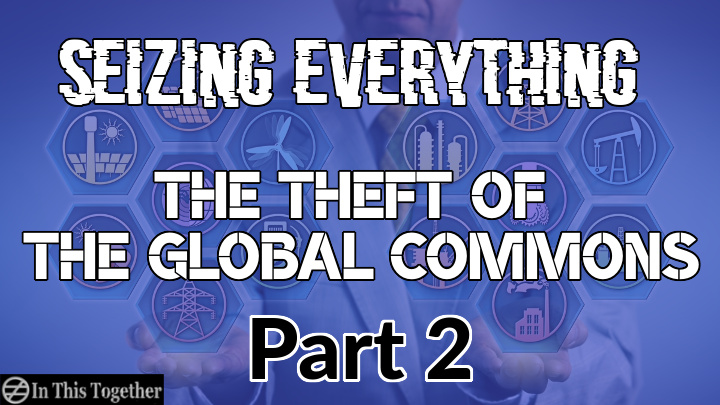
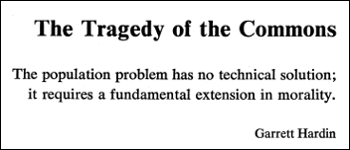

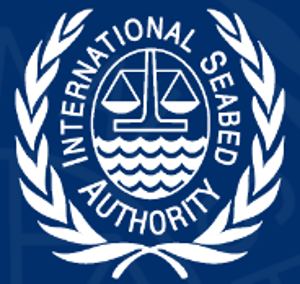
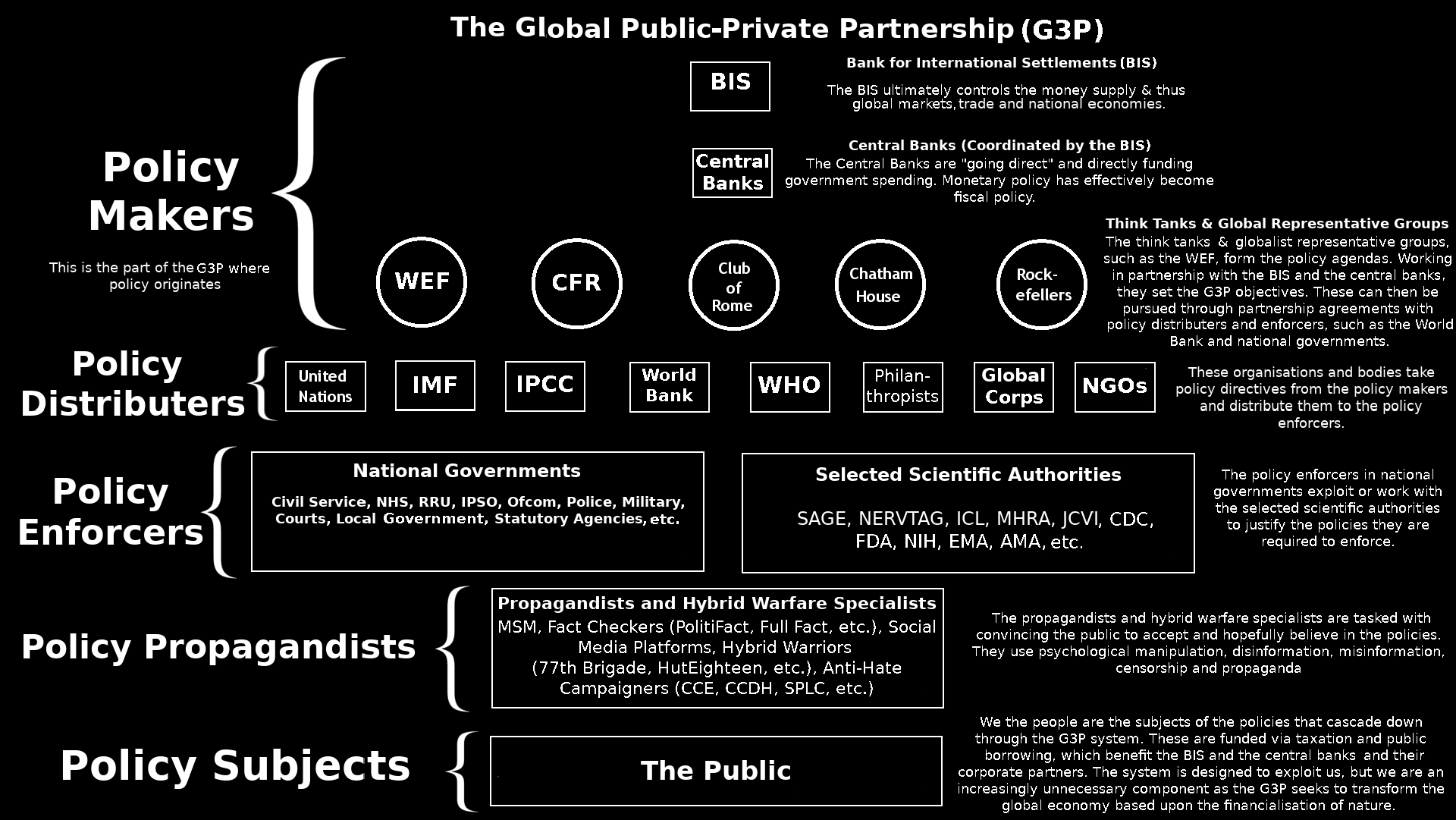

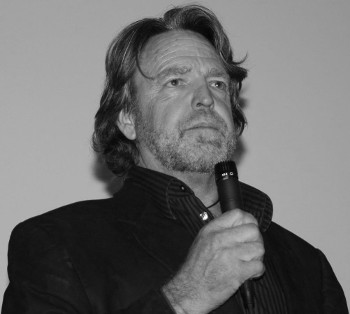


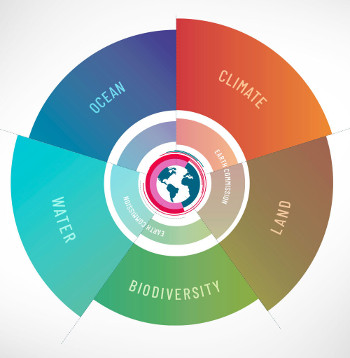
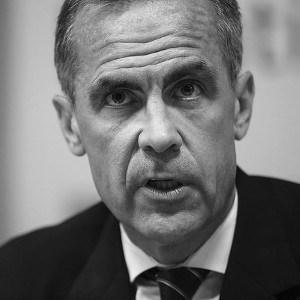
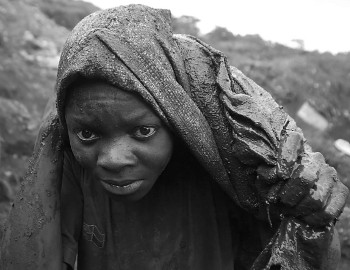
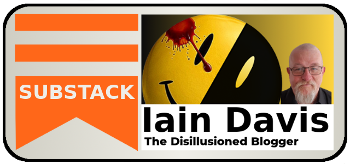

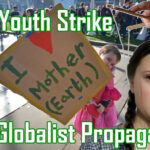



Thanks Iain, for another great article. Conference of the Parties(COP) seems like a fairly flimsy cover for Corporate Overthrow of the Planet. Hard to imagine that the same global corporations that have been raping and poisoning the world we call home for centuries are about to change their ways. Maybe they though we would all be stuck in their digital metaverse matrix and unable to see what was going on. Once they have extracted every last bit of profit and left the planet trashed beyond repair, I wonder where they plan to go then?
It is not too late David. People just need to get their heads out of their proverbials. Rumour has it that New Zealand will be spared.
Horrendous betrayal. This is so big ppl can’t get their head around it…not helped by the lowering of education over the last 50yrs. Is it possible that enough ppl will catch on? Only Time will tell and by then it might be all to late. Many ppl I know think I’m mad for talking about all this and dont listen or simply cant be bothered, they all await the old days coming back while watching Netflix etc! Fools…I wont hold my breath but in the same stance I wont fo nothing. Excellent read and quite scary.
Thanks Carl. Please share. All we can do with this information is share it while we can.
It all makes perfectly logical sense if you’re an insatiable psychopath Iain.
As your resource base becomes depleted the means of exploitation must be ramped up.
Nothing, especially human lives and nature,
will be permitted to stand in the way.
Unfortunately that’s right Johnny. Quite obviously, the people pushing this stuff are insane.
As is their wont when scheduling these events, they do so with perfect kabbalistic timing …
The Iain Davis essay, “Seizing Everything: The Theft of the Global Commons – Part 2”, mentions Garrett Hardin’s, “The Tragedy of the Commons” and John Kerry & Mark Carney’s announcement of their new economic plan called, the Glasgow Financial Alliance for Net Zero – GFANZ, for the “financial system to help move the global economy to net zero greenhouse gas emissions.”
The GFANZ plan was first announced on 21 April 2021 – on eugenicist Garrett Hardin’s 106 th birthday and the 75 th anniversary of the death of eugenicist & economist John Maynard Keynes
https://www.reuters.com/business/sustainable-business/carney-kerry-launch-global-finance-plan-boost-climate-action-2021-04-21/
21 April 2021 also just happened to be an INClusive 911 months after the the Club of Rome, “Limits to Growth” co author, Jorgen Randers was born …
MG
Thanks Mark. I had no idea about that fascinated coincidence of Hardin’s birth. I was going to include a reference to Hardin’s eugenic ties, as leader of the American Eugenics Society for example, but found it distracted from the intent of the article.
Thanks Iain,
another phenomenal piece of investigative/analytical journalism.
“A diversion to facilitate a robbery” just about sums up every injustice inflicticted upon the public in recent times…(“Never let a crisis go to waste”).
Honestly, the longer I live (and its testimony to the truly educative worth of such in-depth research such as this) the more I feel like an aphid being farmed by ants…It’s more and more Orwellian/Matrix-ian by the day.
Love the Whitney Webb quote.
It pains me to realise that there are so few people in my, admittedly small circle of friends (Don’t get me started on my disappointment with the human race) who would even consider giving the time of day, in preference to consuming placating substances/streamed (read drip-fed) entertainments, to read, let alone absorb, a scintilla of this content (and I freely admit it would take many focused re-readings for my own benefit).
The picture of the unfortunate, presumably Congolese child labourer is very poignantly captioned “sustainable development”. Sadly, more likely to be considered Epsilon-semi-moron” by the eugenicist elites, that seem to have bred out of their genes anything resembling empathy.
Thanks Aodh. As far as I can tell the parasite class don’t even appear to have empathy for each other. It is a dog eat dog world because they choose to make it so.
Fantastic article Iain quite scary though. Difficult trying to bring this to people’s attention have got to try.
Thanks Allan. I don’t know if you are familiar with the work of Mark Passio but his take on the ugliness of reality is refreshing. Probably to paraphrase him badly, we must look at horror in the face. We cannot pretend that it isn’t so when it is. Good does not always triumph and it is a dereliction of the duties we are bound to by our inalienable rights to ignore it.
Hello Iain.
Thank you for your useful work and for the comment facility. I enjoy reading your articles.
I do not consider these event relationships as coincidences.
21 April 2021 was also :
= 911 months, 911 weeks, 911 days
since Barbara Bush was born
https://www.timeanddate.com/date/dateadded.html?d1=8&m1=6&y1=1925&type=add&ay=&am=911&aw=911&ad=911&rec=
“There are no accidents around here …”
MG
Hey Iain – nice, it reads well. Mark the Carney always reminded me of Teilhard de Chardin’s obsession with his Omega Point. Found this bit at Wiki: “… what would have become of humanity, if, by some remote chance, it had been free to spread indefinitely on an unlimited surface, that is to say, left only to the devices of its internal affinities? Something unimaginable. … Perhaps even nothing at all, when we think of the extreme importance of the role played in its development by the forces of compression.” There was a time when I thought “jeez, these guys are clowns, no way they own the future”. That was around 2010 when I was reading FSB white papers on derivative counter-party clearing. Word-salad kind of things mostly. Heavy on the vague but it looked amateurish rather than cloaked, more like they really didn’t know how to deal with the risk. Looks like they’re threading the eye of the needle, eh? I’ll ask Gail Tverberg what her take is on the energy-transition they envision. I was born thinking we were going over the cliff in my lifetime. Probably some echo from the world-wars. Good luck to you. I’ll likely get your book and wander around in your thoughts some more. Gratzi for this worthwhile read. It reminded me of a video I watched of a couple of kids in California filming one of those regional Agenda 21 meetings where the planners were unelected b’crats for the most part. It was a hoot when the kids stood their ground on their right to film and the assholes backed-down. See ya
Thanks Hillcountry. We should learn from those kids. Now we all need stand on our rights.
Add to this the transhumanist project, of which this fake “vaccine” is a part, I am sure, where we do not even own our own thoughts or children, under a brutal dehumanising social credit system of 24 hr surveillance… and real life on earth is over. For the sake of all life on earth we must stop this whatever it takes.
I believe humanity is already traded on the stock-market like livestock and none of us actually own our property we spent our entire lives paying for. Lied to from birth, controlled by fear spin decade after decade. I want all these the lying toads brought to justice by a well informed public jury
There is no morality in corporate privatised banking with these satanic psychopaths and their corrupt greedy arrogant agenda. They are liars taking us down into hell. I think The Protocols of Zion may be part of this awful agenda and that is terrifying for everyone.
Time to take notice and get these corrupt corporations under lawful control, strictly accountable, with morality and honour based common law to the forefront of our legal system. We need a new system, with real public participation. Taxation without representation is theft and slavery and once the microchips are in ….the end.
It must be stopped.
I agree Sue, it must be stopped. I don’t put much stock in the Protocols. It is a highly questionable document in my view. I think times will be tough for those who initially refuse to comply but, as disillusionment will undoubtedly grow(we are already seeing this with people questioning why they now need boosters to travel), the number of us who currently engage in non-compliance will be dwarfed by those who once did but cease doing so. At some point in the not too distant future I think there will be real resistance to this.
What about Russia and China!?
Are they getting into this as well?
That is the suggested in the article.
Public interest. We all recall the Twilight Zone episode (original) where the aliens with a taste for human flesh advertized their intentions as ‘serving humans’.
I noticed the reference to the vile McKinsey & Company. I read Duff McDonald’s account of that influential consulting firm and, while Duff admires them, he still manages to report sufficiently factually to leave no one in any doubt about the ‘nature’ of McKinsey’s influence on the Corporatocracy. It has been very negative. Perhaps there’s another universe with a parallel earth in which McKinsey never existed and neoliberal capitalism (fascism essentially) withered and died.
McKinsey is mentioned in another article I just read. See Rhoda Wilson’s article (“The Exposé”) titled “Bayer Pharmaceuticals President Admits mRNA “Vaccines” Are Cell and Gene Therapy and The Public Would Not Have Agreed to Take Them If It Were Not for the “Pandemic”.” / https://theexpose.uk/2021/11/06/bayer-pharmaceuticals-president-admits-mrna-vaccines-are-cell-and-gene-therapy-and-the-public-would-not-have-agreed-to-take-them-if-it-were-not-for-the-pandemic/
Iain: This article was another fantastic job well done! There’s lots there. I don’t have a powerful brain and it’s only by reading this complex material again and again that I can start to grasp it fully. This helped me along in that regard.
It’s fascinating, in a horrible way, to observe how those playing God can only busy themselves stealing the means of life from others – their substitute for honest, productive, society-building, work – because for them to pause for a minute in their mad rush to destroy our world so that their’s may be realized, it could lead them into a state of alarm should the thought come into their momentarily quiet and receptive minds that calling to the true God to “Bring it!” might accomplish that. In fact, God doesn’t jump when others tell him to. But God is much more clever than people like Mark Carney. Everything’s converging. Jehovah God has his timetable. Time’s up for this toilet world. Mark Carney et al will possibly think that, by their cruel, perverted behavior, they succeeded in forcing God to make an appearance. Who cares? What matters is that the parasite-predators are stopped – for good.
Many thanks for this Iain. My offered comment: –
Population sizes naturally self-limit to fit available resource.
As arrogance of Hardin et al lacks knowledge of their human fallibility their plan is not so solidly based on facts as it could be.
They assume themselves better than others yet expect others to be greedy based on assumption we’re all same (as them).
Their power to control natural world is so far out-classed by nature’s power it’ll bite their back-sides, and some.
They’re stuck in same automaton more, more rut they crashed in before, they won’t get trillions by doing yet more of same.
‘Might is right’ is brawn’s mantra but thinking is humans’ strength; brawn loses when opposed by thinking.
Prospect seems gloomy but humans cannot see into the future. Thus, unexpected is inevitable and even best laid plans can go astray; remembering it’s so helps continue thinking and avoid despair and anger.
Surprise is when something unexpected happens; government admitted itself surprised when Brits’ complied in March 20.
It was off-plan. We need to surprise them again and, this time cash-in on it while they’re wrong-footed.
We’re under them; ideal place to undermine them and ruffled mats trip those who walk on them.
Stratospheric are justifiably scared of falling out of ethereal cyberspace; nervous wrecks can be rattled into making mistakes.
Totalitarian digital control is dependent on internet which isn’t expected to crash, but anything’s possible and, it is a bit ‘all eggs in one basket’; notorious high-risk.
Plan seems triggered prematurely; internet coverage incomplete in Britain, more so in other countries, putting their plan at risk of going off ‘half-cock’.
I’m more likely to ‘die with my boots on’ than kow-tow; you don’t fail unless you give up and why give up when unexpected success could happen
First thank you for your invaluable job. I translated it in Italian and spread it through my vlog,(of course nominating you as author). My conclusion is that, since we talk of the same few people the idea is not new. What is happening now happened in 1971 when Nixon declared the dollar not backed anymore by gold. That was the creation of the “petrodollar” using oil to back a completely worthless currency. Now they are going “global” The new currency will be the global currency (digital)backed by the “global commons”and of course will have a much longer expiring date. Next will be may be Mars´resources….
Thanks for translating. Really appreciated. Yep we are witnessing the continuation of a plan that is centuries old. We can go back to Cecil Rhodes and the round table groups for its modern lineage, but we could go back further still. Basically it is the same old dream of all tyrants. Total control and centralised authority.
The difference being that in the past there was not the monstrous ‘force-multiplier’ of Digital surveillance tied to BioDigital_ID. Authority was limited by the MANPOWER it could command, both financially and psychologically…Which meant there was always ‘Free’ space in ‘The Commons’ that dissidents could escape to, if they kept their heads down, and ‘Omerta’. It is the closing off of this ability to escape the long arm of Authority that I find most terrifying about this new model Tyranny….
Exactly the same robbery was the hallmark of the communist elites. Nobody “owned” anything, but the party apparatchiks (the only party – there was no need for two otr more, as everybody “supported” the only party’s program) should not be deprived the goods their western homologues could enjoy. So the did enjoy them not as goods bought and owned privately, but “only” as cabinet, ministerial, official, state, government etc property.
Of course the arrangement was not unjust, but just and “for the best” of the proletariat, as the proletariat’s avantgarde shall lead the proletariat, knows everything better and is offering their precious life for the unvicible right system.
Right from the very beginning of #TheGreatCovid19Fraud, I said it was a Heist….But Holy Crap…I never realised quite how right I was! Brilliant writing as ever. Thanks again…
Hi again so appreciate this but do not see a resource or link for the claim of tens of thousands of child slaves. I imagine there are many- but that article speaks of no slaves and not that many children in proportion. Do you have other links? I am wanting to learn as much as i can about this subject in particular. thank you
as a follow up – i see in the other there is mention of “forced labor but again those numbers are not here in either.
Thanks Pooja. I’ve said “tens of thousands” as a calculation based upon the following in the cited article:
Though technically they are “child labourers” I reject that term. In my view there is no such thing as a “child” worker, beyond perhaps a weekend job for some limited but useful work experience. 70hrs + per week in an open cast mine is not “work experience.” Add to that the poverty which compells families to send their children to work in the mines for a pittance and I think we can legitimately call it “child slavery.”
An estimated 40% of the DRC miners are under 18. So tens of thousands of child slaves seems reasonable to me. There’s another link here if you want to research it further.
https://www.humanium.org/en/child-labor-in-the-mines-of-the-democratic-republic-of-congo/
Thanks for alerting me to the first link which has now been changed to the archived version as that page has magically disappeared. I really don’t know why I bother using non-archived links. The book burning is constant.
Am also not able to download a copy of either of these articles… is it possible another way?
Thanks Pooja. The download links are working for me so not sure why you can’t download them but I’ve given the direct links below:
Part 1: – https://iaindavis.com/pdfs/SETTGC-Part1.pdf
Part 2: – https://iaindavis.com/pdfs/SETTGC-Part2.pdf
Mr Davis, thank you very much for your insightful research and writing.
I would be interested to know more about the policy-making hierarchy depicted in the chart “The Global Public-Private Partnership.” I would appreciate any books/articles you could recommend.
Thanks E Abbassi. The chart is formed from the contents of my book Pseudopandemic which is free as a pdf or epub to my subscribers. Simply subscribe and I will send you a copy.
This was riveting. A bit long and the part about FSB and BIS probably best as a part 3. I also think you and Corbett make a great team (you’re only one of a few people at his level), his model to make a living off his work is also effective, not sure you can do that, but you and him should be on each other’s shows more often.
Thanks ProtonMagic. I just can’t seem to nail down shorter form articles, although it is something I am working on. High praise indeed, thanks. I wouldn’t put myself in James Corbett’s bracket. He deservedly earns a living from his website. Hopefully, I will be able to achieve the same one day. Please share my work.